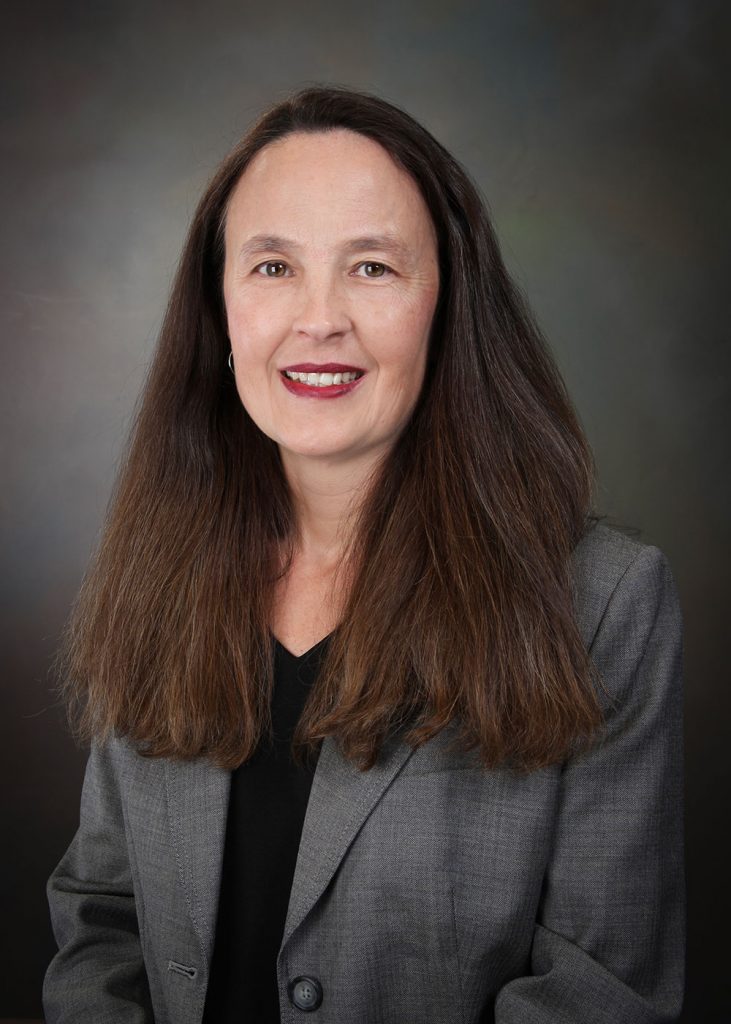
Detecting the risk of counterfeit parts or the insertion of malicious software is important for workers charged with maintaining Sandia’s supply chain. Also undesirable are the shorter lifetimes and uncertain performance of counterfeit components sold as the real thing.
But there’s more. The COVID-19 pandemic made it harder to transport electronic parts and raw materials in a timely manner.
“We can never fully get on top of supply chain problems,” said recently appointed Sandia Fellow Amber Romero, who has focused on supply chain issues for Sandia on a daily basis for much of the last 25 years. “We continually analyze to mitigate risk and keep our heads above water.”
But even serving for seven years as team-review chairperson for all contracts above $500,000 — a tenure that ultimately involved the disposition of billions of dollars — did not prepare her for the developments she has seen in supply chains over the last decade. Given this and the Labswide rally cry, she has changes she’d like to see implemented.
“We at Sandia have been subcontracting for a long time,” she said. “Slowly we’ve come to resemble a federal agency. There’s less of the agility with which we started. We’ve got to reverse that trend.
“We need to turn in the opposite direction to the way we’ve proceeded. I want to pivot us back toward reclaiming some of that early agility.”
Requirements are difficult for Sandia suppliers, she said. “The processes have gotten more and more cumbersome. Over the decades, our agility took a back seat to compliance. We need to reprioritize to focus on risks that matter, such as quality and lead time.”
Taking an active role, Amber instituted more extreme background checks on vendors to restrict the flow of counterfeit goods, which have become more prolific. Her team has also partnered with several Sandia computational groups to help ensure that software vendors are examined for potential risk of malicious software insertions.
There are now advanced college degrees and certificate-offering courses that train examiners in her line of work, she said. Long ago, such granularity did not exist. Amber opted not to pursue a doctorate and professorship in linguistics, a subject in which she holds a master’s degree. Instead, she took a more practical second master’s degree from the University of New Mexico’s Anderson School of Management and came to work at Sandia as a buyer. After receiving early mentoring from manager Skip Reeder, her expertise has been self-taught. Her drive to penetrate the fog of supply chain decision-making has made her an expert in supply chain security in the DOE and DOD complexes, where she is often requested to share her insights.
At the White House in May 2019, Amber briefed the Department of Justice chief information officer and federal chief information security officer on supply chain risk management. She also briefed and led discussions with the Air Force Supply Chain Risk Management Working Group at the Pentagon.
She regularly teaches supply chain topics to Sandians in programmatic positions, acquisition, legal, quality and counterintelligence, as well as to people at other national security enterprise sites and federal agencies, such as NNSA and DOE. Several sites in the enterprise have adopted Sandia’s methods for performing supplier background checks.
For her work and leadership, Amber was the team-representative recipient of a DOE Secretary’s Honor Award for the National Security Enterprise Supplier Quality Working Group and an NNSA Defense Program Award of Excellence for subcontractor risk assessments.
People in comparable positions at other national labs and Washington, D.C., headquarters who have written her references make no bones about it: At what she does, she is the best there is.